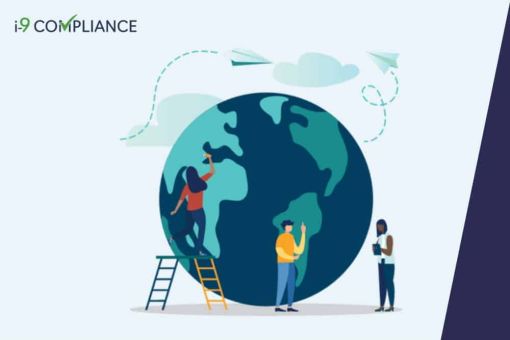Upcoming Regulatory Changes for Employment-Based Immigration

Federal agencies release their regulatory agendas at the start of every fiscal year, which guide their actions for the upcoming period. The U.S. Departments of Homeland Security (DHS), Labor (DOL), and State (DOS) recently released their regulatory agendas, revealing fundamental changes for employment-based immigration. Here are some of the most significant changes on these agencies’ agendas.
Increased Filing Fees
DHS is looking to increase the filing fees that U.S. Citizenship and Immigration Services (USCIS) will charge for processing most requests. The tentative publishing date for this proposed increase is September 2022. On a separate note, USCIS has proposed an increase in filing fees for employers classified as dependent on the H-1B and L-1 visa programs.
Amending L-1 and H-1B Visa Programs
DHS intends to propose revisions to its definitions for “employment,” “employer-employee relationship,” and “Specialized Knowledge” for the L-1 visa program for intracompany transfers. DHS also intends to revise its regulations about the employer-employee relationship, visits to H-1B dependent employer worksites, general guidelines for site visits, and change of status for those changing from an F-1 to H-1B visa status. The department also seeks to streamline the process for H-1B visa registrations.
Implementing the Known Employer Pilot Program
DHS intends to propose a permanent implementation of the department’s Know Employer Pilot Program. Under this program, employers can apply for USCIS to predetermine certain eligibility requirements for both non-immigrant and immigrant visa classifications. This program can significantly reduce the difficulty in adjudicating several applications from the same employer.
Updating Prevailing Wages
The DOL has recently published an interim rule which will alter the department’s current methodology to find the minimum wage for certain types of immigrant and non-immigrant workers. This rule is in response to the DOL’s position that current prevailing salaries are below those of similarly placed U.S. workers, and the revised regulations will reflect this with an increase in prevailing wages across the applicable categories.
Discontinuing B-1 Visas for H-1B or H-3 Eligible Non-Immigrants
DOS proposed discontinuing B-1 visa issuance for individuals that would be classifiable as H-1B or H-3 non-immigrants. The exception is whether the individual in question would otherwise independently qualify for the issuance of a B-1 visa.
Final Thoughts
Immigration regulations for employment are constantly shifting, and the employment eligibility verification process is no exception. As a result, employers continuously face compliance issues due to a failure to remain abreast of the latest changes. One of the best ways to ensure that your company remains compliant is to invest in an electronic I-9 management system. This tool can guide employers every step of the way and guarantee accurately completed forms.
Streamline your hiring process with an automated employment eligibility verification and ensure compliance today with I-9 Compliance.